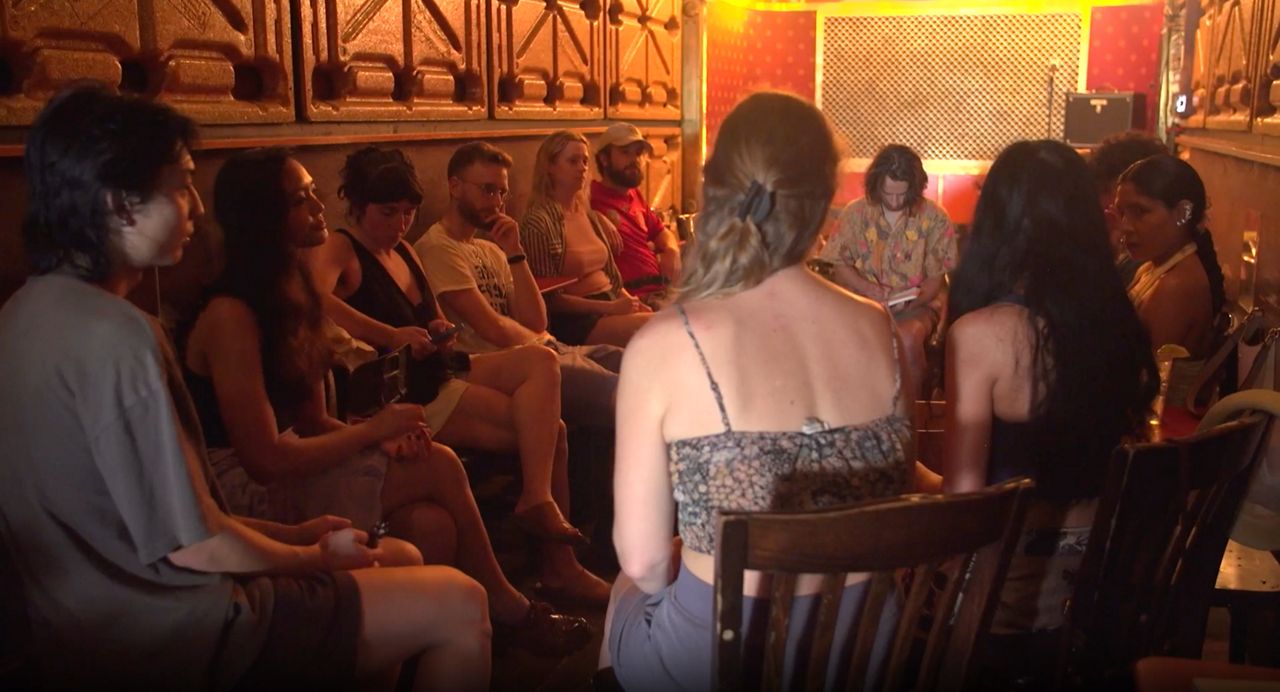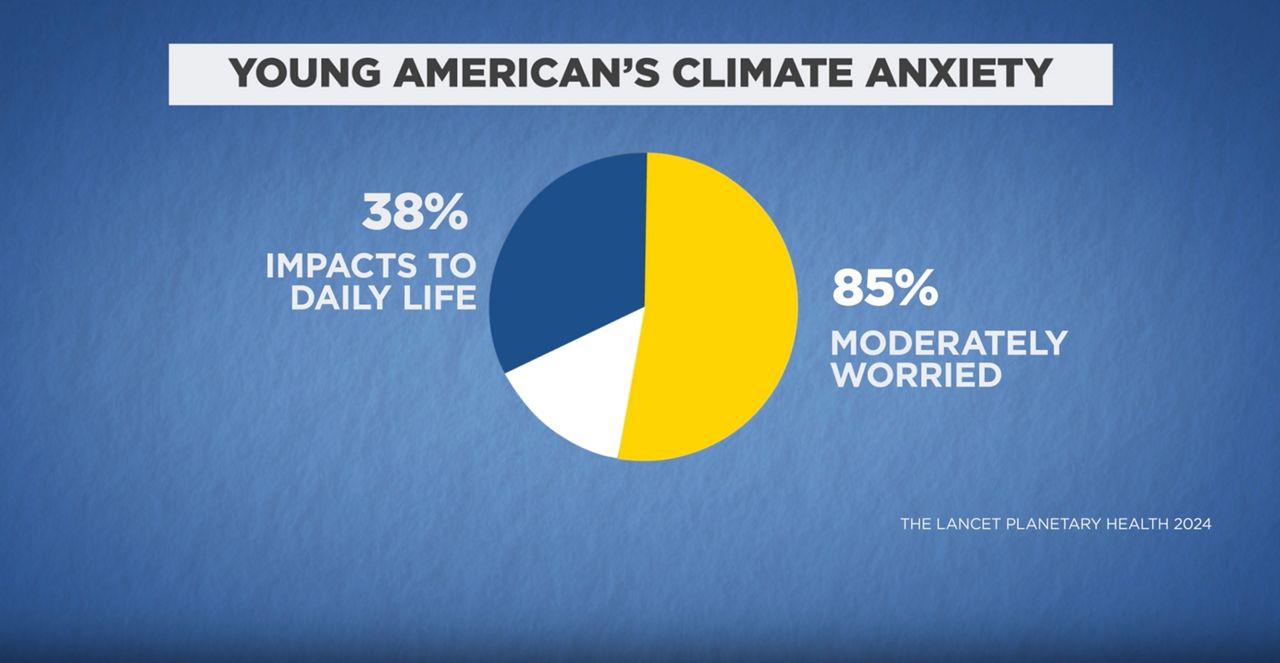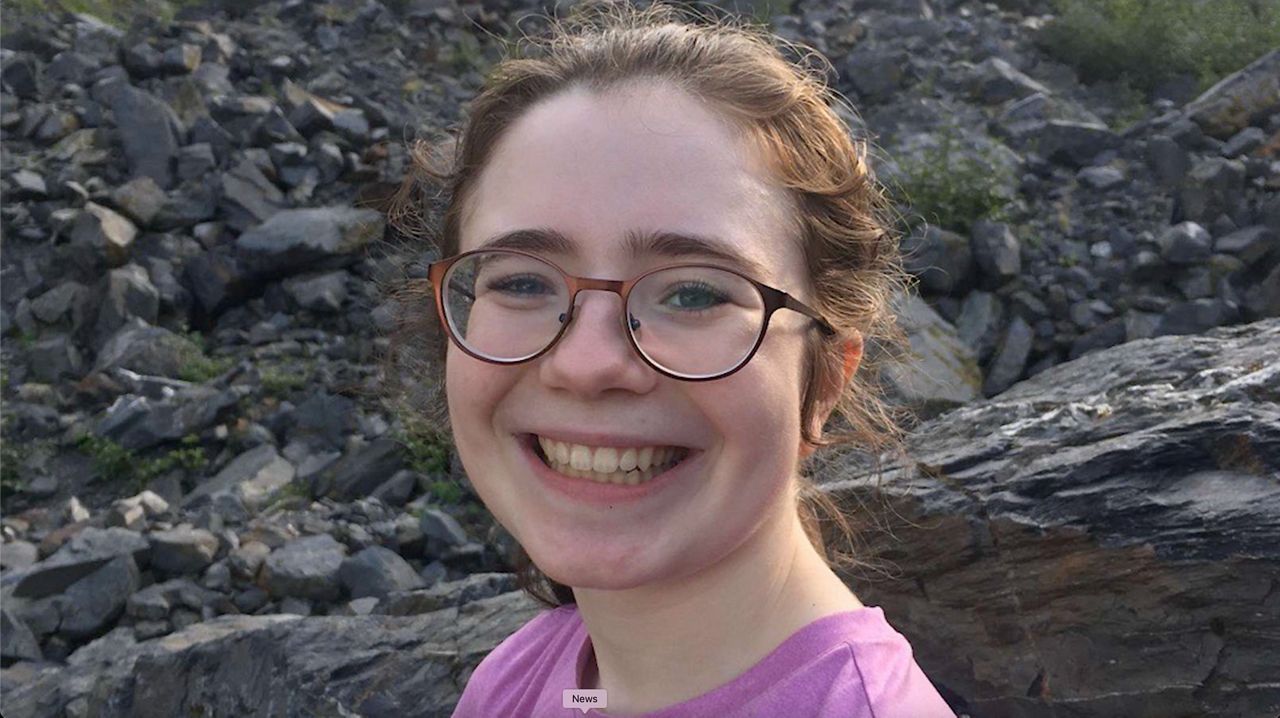As changes to the climate lead to increases in extreme weather events, many Americans are reporting serious effects to their mental health. National Mental Health Correspondent, Dr. Nicole Clark explains what people are doing to find support for their climate emotions.
On a swealtering evening in June, a group of young New Yorkers gathered in a small room at the back of Pete’s Candy Store in Williamburg, Brooklyn. One by one, they went around the circle sharing their feelings about an issue that was top of mind for all of them...the changing climate.

“The center of every climate cafe is climate emotions. We're here to hear one another and be heard from one another,” explained Gianna Lum, a co-founder of Climate Cafe NYC.
The organization is one of many similar groups that have formed globally in recent years with a shared mission – to provide space for people to discuss their feelings about the changing climate.
“A lot of the time, the first feelings people say that they feel are climate grief, climate anxiety. But there's also other emotions, too, like betrayal, anger, confusion, loss.
For Gianna, caring for the planet and watching out for the climate has been a lifelong pursuit that began when she was just 9 years old.
“I got really into composting and like changing the light bulbs at home and really solution driven,” she remembered.

Gianna went on to study climate in college and grad school. Then, she found activism.
"As I continued to learn more about climate too, my eco-anxiety started to get worse to,” said Gianna.
“I was really feeling a sense of grief and burnout.”
It’s an experience that’s shared by many Americans, particularly younger generations.
In a 2023 survey of 16 to 25-year-olds, 85% reported feeling at least moderately worried about the climate. 38% said those feelings negatively impact their daily life.

“Climate anxiety can present itself in a wide variety of ways across different individuals for some it might just be fleeting thoughts and feelings of fear or panic,” explained Britt Wray, the author of Generation Dread, and the director of Circle at Stanford Psychiatry
Circle is a department focused on the mental health effects of the changing climate. Britt says the effects of climate distress can be disruptive.
“We've seen reports of sleep problems, inability to concentrate, interruption at school or work, sometimes panic attacks,” said Britt.
The burden of these symptoms falls disproportionately on communities already dealing with more direct climate impacts. Generally low-income communities of color.
“There's been this kind of assumption, a knee-jerk response to say, oh, climate anxiety, that's just a preoccupation of the worried well,” said Britt. “When you look at the data, it tells a different story.”
Research shows that those on the front lines of climate disasters report the highest rates of climate distress.
Britt says that coping with those emotions starts with being able to name them.
“We lack social norms in our culture, in many cultures, for talking about the distress that comes with losing a sense of stability in the future or witnessing a beloved hometown fall to ashes in a wildfire, or expecting that you'll have to migrate from the place where you live because of sea level rise.”
She says the key to managing climate emotions is to find others who understand and can validate your feelings.
That goal has inspired climate cafes and other support groups across the country and even globally – including Gianna’s group in New York.
“It's really a space to help people recharge,” said Gianna.
She says sometimes the greatest comfort comes from the sense of community.
“I think it can be cathartic to know that we can share this with one another and that we're not alone in this.”
That is a feeling that motivates her to continue doing the work she’s passionate about.






